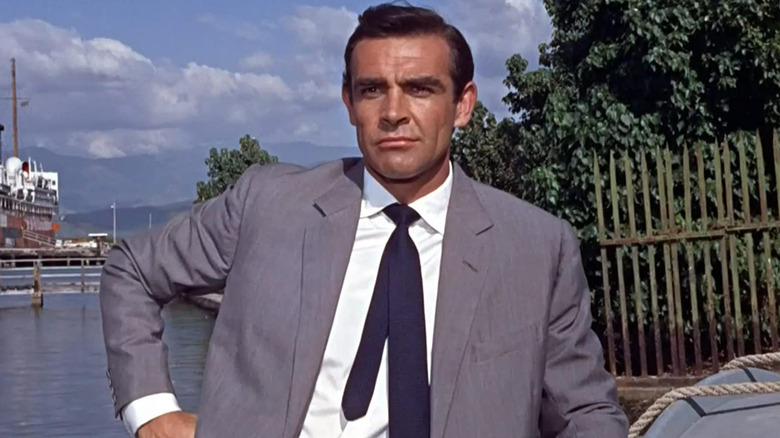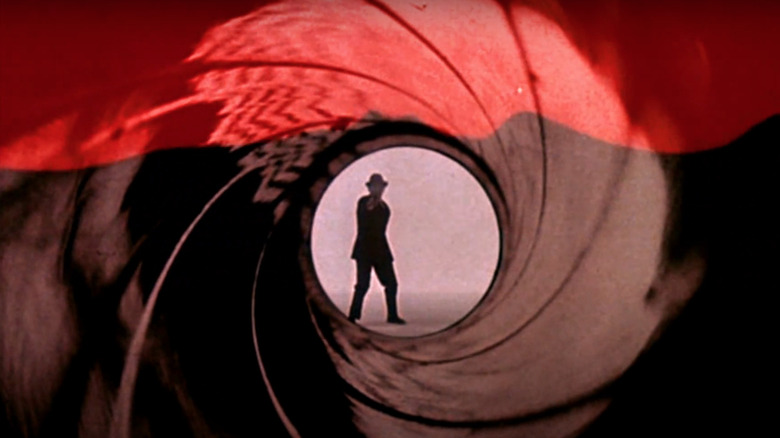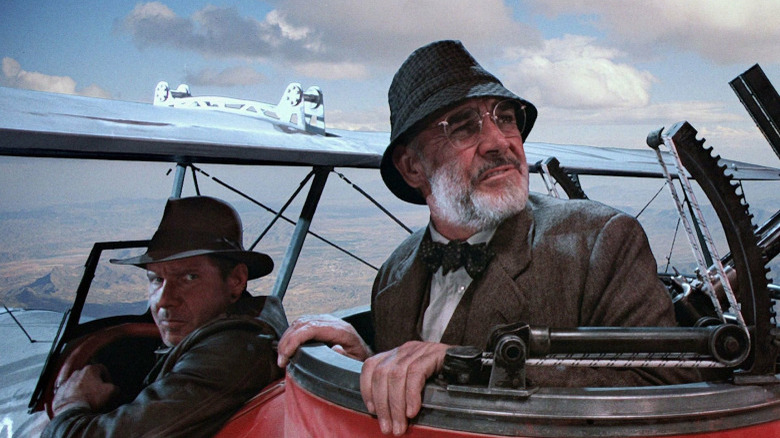Why Landing James Bond Was A Double-Edged Sword For Sean Connery
There's something about playing James Bond that seems to really stress actors out. While everyone is waiting to hear who will be next Bond, most of the actors who've played him before have been vocal about their issues with the entire affair. In 2012, Daniel Craig told Rolling Stone that he'd been "trying to get out of this from the very moment [he] got into it," while Pierce Brosnan, post-007 tenure, lamented the "stupid one-liners" and celebrated no longer being "shackled by some contracted image." Whatever is going on over at Eon Productions, it appears that playing the famed super-spy isn't all Martinis, girls, and gadgets.
Strangely, problems seem to have plagued whoever was playing Bond at any given time since the very start. The original and, by most people's estimations, best Bond actor, Sean Connery has 007 to thank for launching his career. That's something he was aware of from the start, telling the New York Times in 1964 (following his Bond debut in "Dr. No"), "I would never deny that Bond made me ... and I'll be everlastingly grateful to him."
Then, in a move that would prove oddly prophetical in its similarity to Brosnan's future complaints, Connery went on to tell the outlet that he was no "Bond-slave" and could "cut the shackles free any time [he] wants to." Why does being Bond seem to be such a double-edged sword? Well, actors don't particularly like being type-cast, and playing 007 really doesn't help in that regard.
Bond under pressure
In Connery's case, the actor was catapulted to fame following "Dr. No" and immediately caught off-guard by the success. In an interview with the BBC, he recalled how he "had no awareness of that scale of reverence and pressure" and was left to deal with it by himself: "I never had a press representative and I found it a bit of a nightmare actually, to deal with." That undoubtedly played into Connery's famous comment, via The Hollywood Reporter, that he had "always hated that damn James Bond" and that he'd "like to kill him."
But beyond the pressure that came with playing such a popular character, being Bond had seemingly pigeonholed Connery as a performer. As Variety argued in 2020: "For Connery, Bond proved to be both an opportunity and an albatross ... it also led to issues when he wanted to stretch his acting muscles." Throughout the '60s, Connery continued to play the popular spy, but would attempt to branch out with 1964's "Marnie" and 1965's "The Hill," rendering a truly impressive performance in the latter which put his character actor abilities on full display.
Neither of these films were huge commercial hits, however. Instead, Connery would have to wait until the '70s — when he appeared in productions such as "The Man Who Would Be King" and "Robin and Marian" — to break away from his association with British Intelligence. He would later earn an Oscar for his role in "The Untouchables" shortly before the actor's now-legendary performance in 1989's "Indiana Jones and the Last Crusade." Still, it took some time for the Scot to convince the masses he was more than Bond. HIs experience must have been incredibly frustrating and probably why he so bluntly turned down an opportunity to return as 007.
Leading man and character actor
Connery was clearly a diverse talent, which allowed him to transition from playing leading men to dads with ease in the later years of his career. In his BBC interview, he recalled being told that, in order to become an actor, he had to "be able to look as though [he] could work in a mine and have read Proust." It's a principle it seems he kept with him for his entire career. In order to offset his gruff Scottish demeanor, Connery noted that he did indeed read everything from Stanislavski's "My Life in Art" and "An Actor Prepares" to Tolstoy's "War and Peace" and James Joyce's "Finnegan's Wake" and "Ulysses." He, of course, also made sure to read Proust, finishing "In Remembrance of Things Past" and even making time to absorb "all Shakespeare."
Though it took some time to pan out, pan out it did. The combination of his working-class background with his erudite, well-read manner not only proved vital for his role in Bond, it would allow Connery the varied career he eventually managed to enjoy. It even prompted his "Murder on the Orient Express" director Sidney Lumet to observe that while "most actors are either leading men or character actors" Connery was "one of the few stars who encompasses both."


